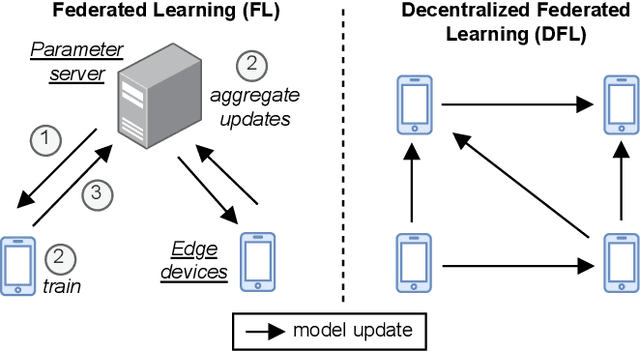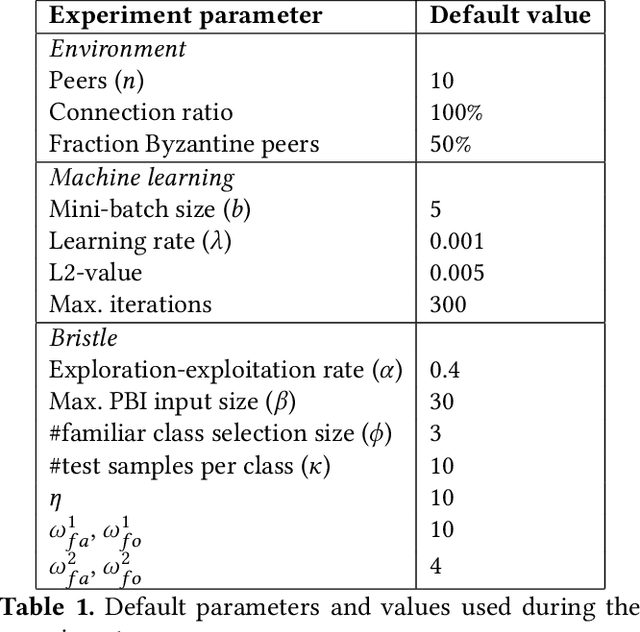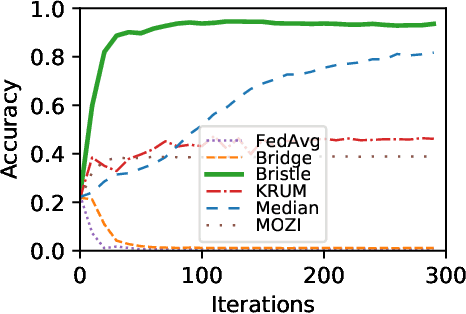Joost Verbraeken
Bristle: Decentralized Federated Learning in Byzantine, Non-i.i.d. Environments
Oct 21, 2021



Abstract:Federated learning (FL) is a privacy-friendly type of machine learning where devices locally train a model on their private data and typically communicate model updates with a server. In decentralized FL (DFL), peers communicate model updates with each other instead. However, DFL is challenging since (1) the training data possessed by different peers is often non-i.i.d. (i.e., distributed differently between the peers) and (2) malicious, or Byzantine, attackers can share arbitrary model updates with other peers to subvert the training process. We address these two challenges and present Bristle, middleware between the learning application and the decentralized network layer. Bristle leverages transfer learning to predetermine and freeze the non-output layers of a neural network, significantly speeding up model training and lowering communication costs. To securely update the output layer with model updates from other peers, we design a fast distance-based prioritizer and a novel performance-based integrator. Their combined effect results in high resilience to Byzantine attackers and the ability to handle non-i.i.d. classes. We empirically show that Bristle converges to a consistent 95% accuracy in Byzantine environments, outperforming all evaluated baselines. In non-Byzantine environments, Bristle requires 83% fewer iterations to achieve 90% accuracy compared to state-of-the-art methods. We show that when the training classes are non-i.i.d., Bristle significantly outperforms the accuracy of the most Byzantine-resilient baselines by 2.3x while reducing communication costs by 90%.
A Survey on Distributed Machine Learning
Dec 20, 2019



Abstract:The demand for artificial intelligence has grown significantly over the last decade and this growth has been fueled by advances in machine learning techniques and the ability to leverage hardware acceleration. However, in order to increase the quality of predictions and render machine learning solutions feasible for more complex applications, a substantial amount of training data is required. Although small machine learning models can be trained with modest amounts of data, the input for training larger models such as neural networks grows exponentially with the number of parameters. Since the demand for processing training data has outpaced the increase in computation power of computing machinery, there is a need for distributing the machine learning workload across multiple machines, and turning the centralized into a distributed system. These distributed systems present new challenges, first and foremost the efficient parallelization of the training process and the creation of a coherent model. This article provides an extensive overview of the current state-of-the-art in the field by outlining the challenges and opportunities of distributed machine learning over conventional (centralized) machine learning, discussing the techniques used for distributed machine learning, and providing an overview of the systems that are available.
 Add to Chrome
Add to Chrome Add to Firefox
Add to Firefox Add to Edge
Add to Edge